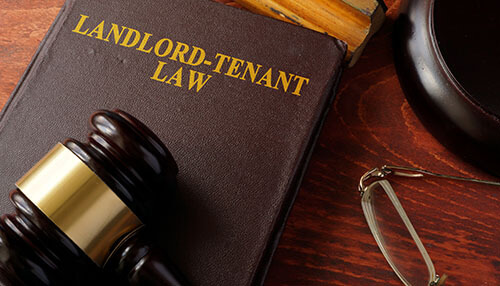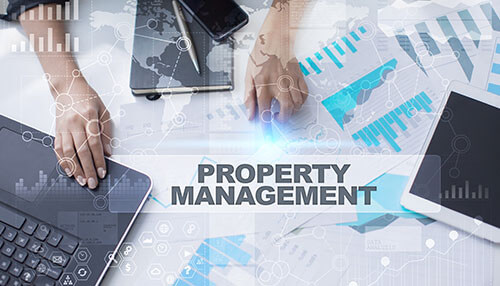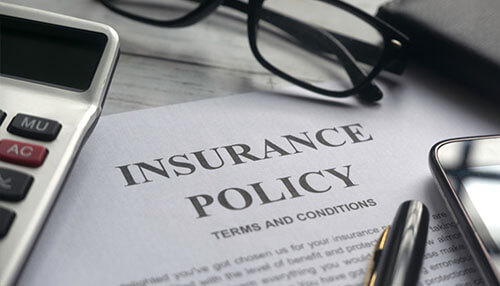If you’re a landlord, specific responsibilities come with the territory. Some of these are essential to protecting your investment and keeping your tenants happy, like making sure the property you’re renting out is up to code and in good condition. Others may be less essential but can still add value to your property and make it more attractive to potential tenants, like providing amenities or green space.
No matter your priorities, it’s essential to be aware of all the different landlord responsibilities for informed and objective decision-making about how to best invest in your property. Here are 12 of the most essential landlord responsibilities to keep in mind:
1. Providing Amenities
One of the most significant landlord responsibilities is providing amenities for tenants. It can include anything from basic necessities like heat and hot water to more luxuries like a swimming pool or gym. Amenities often come at an additional cost, so it’s important to factor this into your budget when you’re planning your investment.
Depending on the type of rental property you own, you may also be responsible for providing extra amenities like a laundry room, a gym, or a trash removal service.
Investing in an industrial trash compactors is one way to provide a valuable amenity to your tenants while also reducing your costs. Industrial trash compactors can help reduce the amount of waste produced by your tenants, saving you money on disposal fees.
Many landlords also choose to provide green space for their tenants. It can be anything from a small courtyard to a large park. If you’re considering investing in green space, it’s necessary to factor in the cost of maintenance.
While amenities are not essential, they can be a great way to add value to your property and make it a magnet to potential tenants.
2. Keeping Your Property Up To Code
Another important landlord responsibility is making sure that your property is up to code. It means ensuring that your property meets all the safety and habitability standards your state or municipality has set.
Some of the specific things you’ll need to do to keep your property up to code include the following:
- Maintaining safe and functional electrical, plumbing, and HVAC systems: Regularly inspecting and repairing or replacing these systems as needed.
- Providing adequate lighting: This includes both indoor and outdoor lighting.
- Safety Features: Make sure there are working smoke detectors and carbon monoxide detectors on every property level: You’ll also need to test these devices regularly and replace them as needed.
- Keeping the property clean and free of debris: This includes everything from cleaning the gutters to removing snow and ice in the winter.
- Maintaining cleanliness and safety standards in common areas: This includes hallways, stairwells, and other shared spaces.
3. Making Repairs Promptly
Another critical responsibility of landlords is making sure that any necessary repairs are made on time. It’s not only crucial for keeping your tenants happy, but it’s also essential for maintaining the value of your property.
Some of the most common property repair issues that landlords need to deal with are:
- leaks in the roof or windows
- damaged flooring
- plumbing problems
Under the Landlord-Tenant Law, it’s the landlord’s responsibility to ensure that all repairs are completed timely and efficiently. However, it’s important to note that tenants are also responsible for taking care of certain minor repairs caused by their own negligence.
4. Keeping Pest Control Up To Date
Another important landlord responsibility is keeping pest control up to date. It’s vital if you own a multifamily property, as pests can spread quickly from unit to unit.
Some of the most common pests that landlords need to deal with includes:
- mice
- rats
- cockroaches
- termites
Keeping your property free of pests is crucial for the health and safety of your tenants and also essential for protecting the value of your property. Hiring the best pest control company can help prevent infestations and keep your property in good condition.
5. Maintaining The Landscaping
If your property has any outdoor spaces, it’s your responsibility to ensure they are well-maintained. It includes mowing the lawn, trimming the hedges, and keeping the sidewalks clear of snow and ice in the winter.
This responsibility can be fundamental if you own a commercial property, as first impressions are everything in business. A well-maintained landscape can give your tenants the impression that you’re a professional and responsible landlord.
Maintaining the landscaping is not only crucial for the appearance of your property, but it’s also essential for safety. If you don’t keep up with the landscaping, it could create trip hazards or attract pests.
6. Paying Utility Bills
In some cases, landlords are also responsible for paying the utility bills for their tenants. It’s typically only the case if the utilities are included in the rent, but it’s something to be aware of.
For example, if you own a residential apartment building, you may be responsible for paying the water bill. Or, if you own a commercial property, you may be responsible for paying the electric bill.
Paying utility bills is not always required, but it’s something to consider when calculating your expenses. It can be an additional expense for landlords, but it can also be a selling point for tenants. If you include utilities in the rent, tenants will know exactly how much their monthly expenses will be, making your property more attractive.
7. Complying With Fair Housing Laws
As a landlord, you’re also responsible for complying with fair housing laws. It includes non-discrimination against tenants based on their race, religion, gender, or national origin.
You also need to make sure that your property is accessible to people with disabilities. It means providing features like wheelchair ramps and accessible bathrooms.
Another critical part of complying with fair housing laws is ensuring that your rental agreement does not violate any rules. For example, you cannot include a clause that says only families with children can rent your property.
Complying with fair housing laws is not always easy, but it’s something that all landlords need to be aware of. These laws exist to protect tenants from discrimination, and they should be taken seriously.
When you’re renting out your property, it’s necessary to be familiar with the fair housing laws in your area. Complying with fair housing laws is not only crucial for avoiding legal trouble, but it’s also essential for creating a positive rental experience for all of your tenants.
8. Handling Emergencies
Whether it’s a burst pipe or a broken window, emergencies can happen at any time. As a landlord, it’s your responsibility to handle these emergencies quickly and professionally.
Emergencies can be costly, so it’s essential to have a plan in place before they happen. This way, you’ll know exactly who to call and what needs to be done.
Handling emergencies is one of the most critical landlord responsibilities. Tenants rely on landlords to keep their property safe and habitable, so it’s necessary to take this responsibility seriously. Tenants will appreciate knowing that you’re there to help if something goes wrong.
9. Handling Tenant Complaints
As a landlord, you will also need to deal with tenant complaints from time to time. It could range from a noise complaint to a request for repairs.
Most landlords have a process for handling tenant complaints, and you are free to develop one that works for you. For example, you may have a 24-hour hotline that tenants can call to report problems.
It’s vital to handle tenant complaints in a timely and professional manner. It could lead to unhappy tenants and, eventually, a vacancy if you don’t.
10. Updating Insurance Policies
As a landlord, it’s also your responsibility to have adequate insurance coverage. It includes property damage and liability insurance.
You should review your insurance policy regularly to ensure that it meets your needs. As your property changes, so does your risk. For example, if you add a new deck to your house, you’ll need to update your insurance policy to reflect the new addition.
Failing to have adequate insurance coverage can be a costly mistake. If something goes wrong, you could end up having to pay for the damages out of your pocket.
11. Performing Necessary Evictions
Unfortunately, evictions are sometimes necessary. It could be for non-payment of rent or another violation of the lease agreement.
Evicting a tenant is a legal process, and it’s important to do it correctly. If not conducted properly, you could end up facing legal trouble yourself. Most landlords hire an attorney to help with the eviction process.
Executing an eviction process in florida can be stressful, but it’s important to remember that you’re doing it for your property’s good. Evicting a tenant who is not following the rules is necessary to protect your investment.
12. Keeping Records
Finally, one of the essential landlord responsibilities is keeping accurate records. It includes maintaining a lease agreement, tracking rental payments, and documenting any repairs or maintenance on the property.
Many landlords use software to help them keep track of their records. There are several different options available, so be sure to find one that meets your needs.
Keeping accurate records is imperative for protecting yourself in case of a legal dispute with a tenant. It can also be helpful if you ever need to get a loan or insurance for your property.
Final Thoughts
These points are just a few of the essential landlord responsibilities. Of course, there may be other things that you are responsible for, depending on the type of property you own and the laws in your state.
The best way to make sure you are meeting all of your obligations is to consult with an experienced attorney or property manager. They can help you understand your responsibilities and make sure you are taking the necessary steps to protect your investment.





